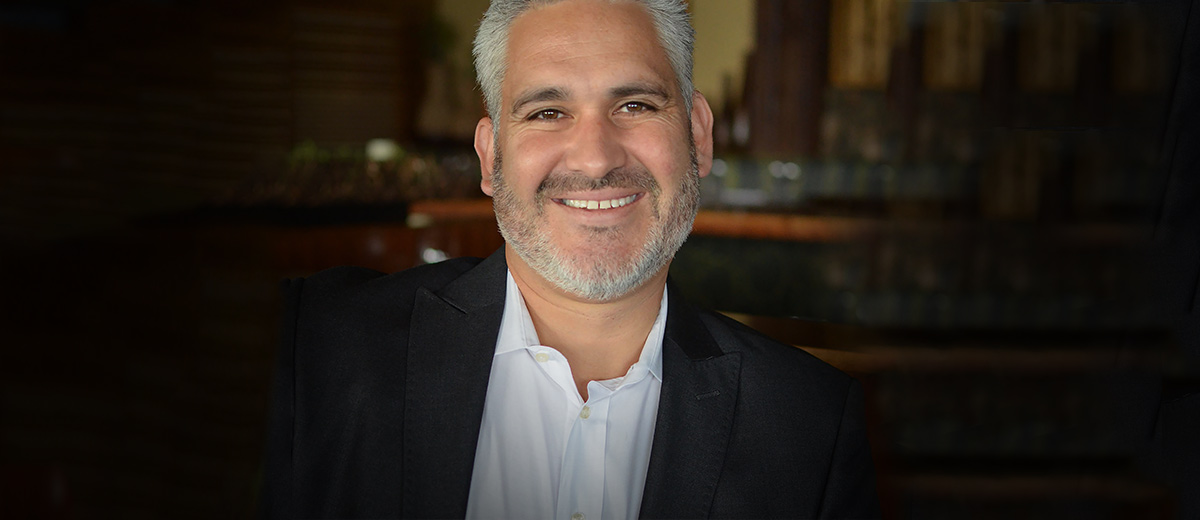Name: Maurice DiMarino
Location: San Diego, CA
Profession: Beverage and Wine Manager at Cohn Restaurant Group
Years in the Industry: 26+
Notable Achievements: Certified Somm, Certified Cicerone, and CRT Certified in Tequila
Q & A:
What first inspired you to begin in the wine industry / how did you get your start?
I started working in restaurants in high school and continued through college as it was a good source of income. When I left college, the restaurant industry allowed me to travel around the world and pursue my interest in art (my major). I was not going to make a living with art, but travelling around the world opened my eyes to different cultures and how others engage with food and beverage. I worked 6-9 months a year and traveled for 3-12 months at a time. Each time I returned, I became more immersed in the restaurants and saw the profit and art of wine. It sparked an interest in me. I never thought I could have a career in this business, but once I fell into it I was never going to leave. Wine allows me to travel and use my creative energy within my multi-concept restaurant company.
What has been the most surprising (in a good way!) bottle of wine you have had the pleasure of tasting recently?
Recently, I had to do a food and wine pairing for the San Diego Union Tribune. I was tasked to pair wine with casual fast food such as Crack Shack, Tacos Salud, and Hodad’s. I asked for samples from some of my vendors and each supplied me with something unique. The wine that blew me away was not the best pairing, but it was by far the most interesting. It reminded me of a racy off dry Riesling with waxy texture. It was Weingut Theo Mingus Scheurebe from Flemingen in the Pflaz. I guess what I find much more appealing are affordable wines that kick butt. You expect expensive wines to blow you away, but more often than not, they disappoint. It is value wines that I find most surprising.
Do you have an all-time favorite wine?
Nope, impossible. Wine changes throughout time, social environments, with the food you eat and even the music you may be listening to. The greatest wine can taste like heaven one day and in another situation just be okay. It’s not the wine that tastes good, it is the whole package; where you tasted it, the temperature it was served, the people you are with and your emotional state to name a few factors. I have tasted a lot of great wines, but my favorite is the one I taste at a moment in time which leaves a lasting impression until the next wine which does the same!
How would you describe the wine culture of San Diego? What do you like about it? What changes would you like to see?
Since I moved back to SD in 2004, there have been monumental changes. There are more and more people willing to experiment with new wine regions and varietals. Back in 2004, it had to be California. That is not the case anymore. We have had many more restaurants open which are bringing more and more people from other cities to work in our industry. They offer a new perspective to wine. What I like about San Diego is that we are still small, “laid back” but professional. Our professionals embrace each other and we have a tight knit community. Our goal is to promote our region without letting our egos divide us. One of the biggest detriments to the wine communities in other cities is the arrogant competition which only divides those communities. San Diego is united. As a tight group we are on a mission to promote each other and give our consumers awareness as to what wine can be. I’d like to see our wine growing region grow and come to up to speed. San Diego has a lot of potential, great climate, great soils, a long history of wine production. Hopefully we can get the recognition of other wine makers and vineyard managers so they come and help us build this region.
As the beverage and wine manager for Cohn Restaurant Group, you’re responsible for overseeing beverages for many different restaurants – what is your process for deciding which wines you will be adding to each menu?
Wow, I think I would have to think about that a bit; but what jumps to mind is to be humble and not pretentious. It is the first thing I say to my students when teaching at SDSU. Wine should be enjoyed, shared, and engaging. Too many times it becomes a symbol of status – whether you are a collector spending thousands on a bottle or a sommelier trying to educate your guest. It is not. It is fermented grape juice. It should be about unifying people so that they drink and open up to each other and communicate freely. It is not something that needs to be hoarded and exclusive to only a few. In this day in age with all our political and social divides, we should turn to wine as the unifier. You may be shocked to see how similar we really are. It’s not what you know, but how you share it.
Besides being a certified sommelier you are also a certified cicerone and CRT certified in tequila – do you think all sommeliers should look at increasing their total beverage knowledge??
Photography courtesy of Maurice DiMarino.



